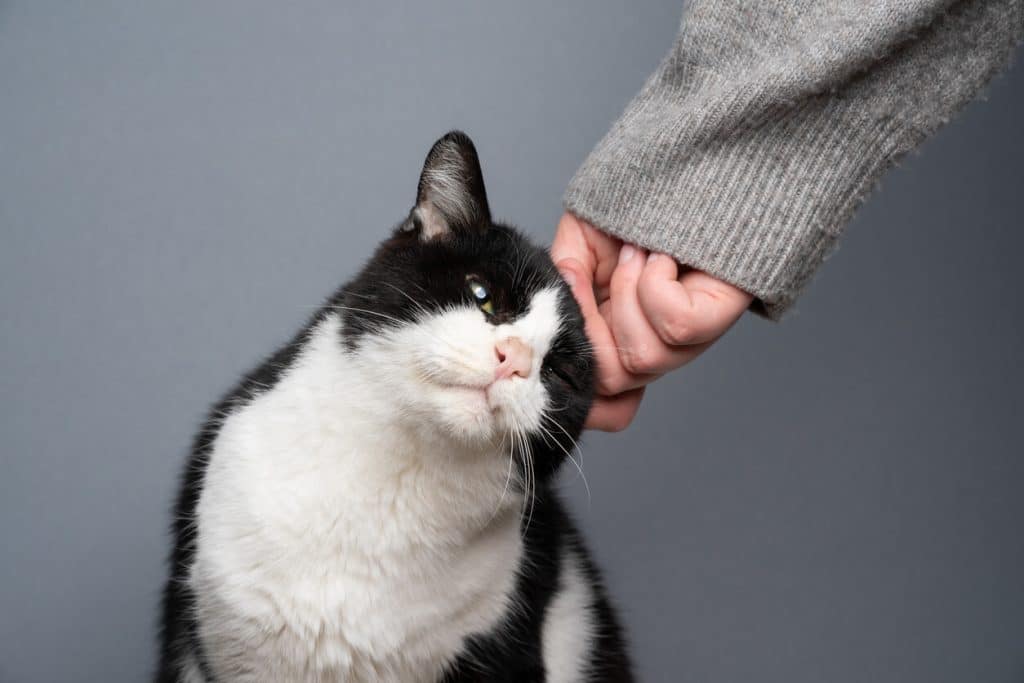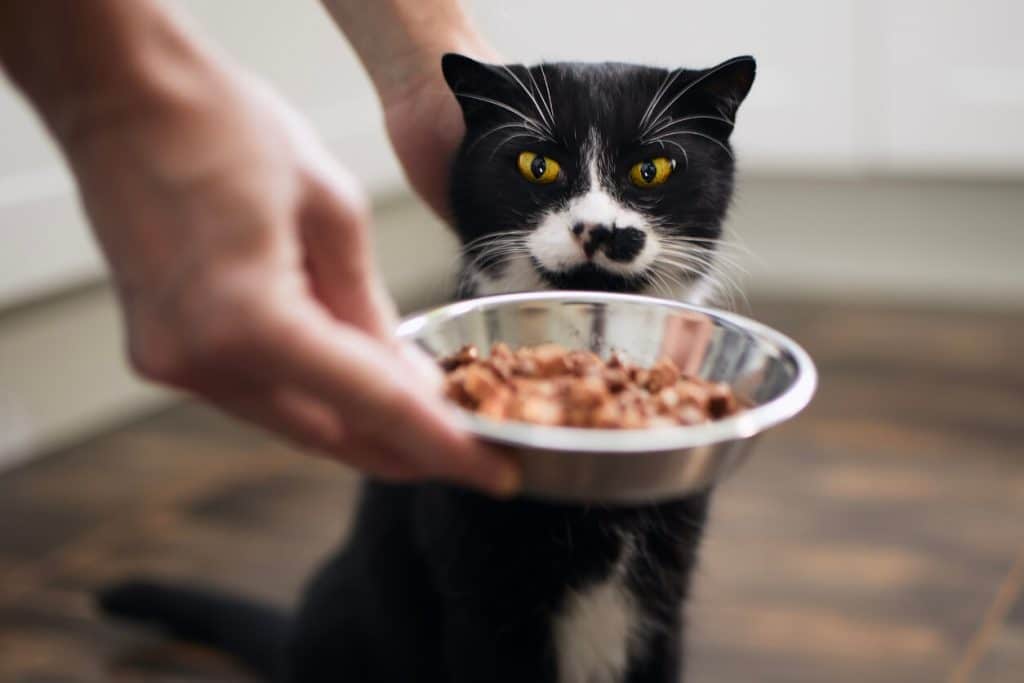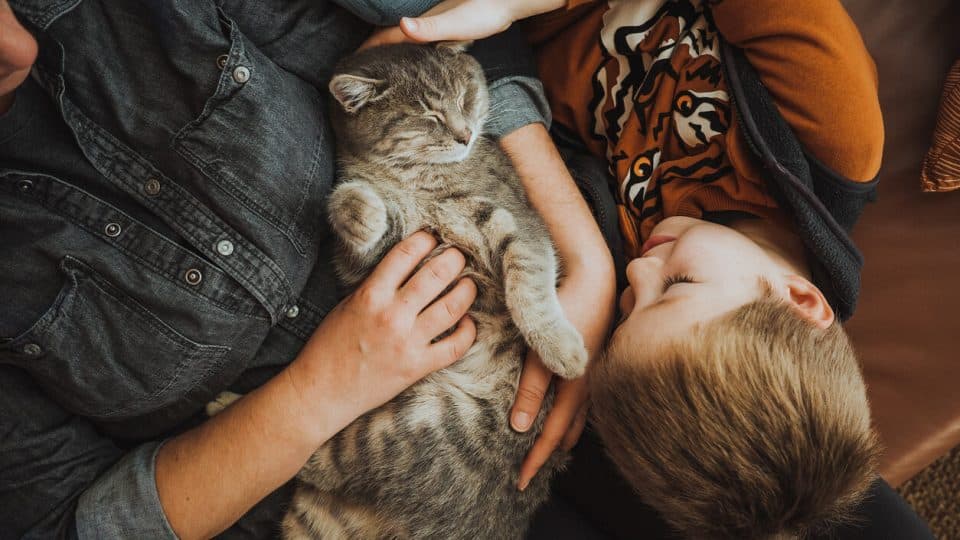For people traveling away from their cat for the first time, don’t fret. Even if you are going on a month-long vacation, your cat will remember you. Cats have a good short-term and long-term memory, indicating that they do remember us. In fact, cats have excellent long-term memories. If you are leaving your cat for college or another multi-year trip, they won’t only miss you but also be filled with affection when you return.
While there isn’t an abundance of research about long-term cat memory, we do know that cats are more likely to remember things associated with strong emotions. The closer the bond you build with your cat, and the more positive the associated memories, the more likely they are to remember you for longer. On the flip side, people who irritate and disrespect cats are also likely to stay in their memory as someone to avoid… or haunt.
In this article, we dive into what it means to live within the memory of a cat. But bear in mind that every cat is an individual, and some cats will be more tuned into the people around them. Some cats may surprise you with how they build associations.
How To Tell If My Cat Remembers Me
Cats show us they recognize us in the ways they interact with us. Dr. Linda Simon, MVB MRCVS, a veterinarian with 11 years of clinical experience treating small animals, says that a sign of a cat remembering you can look like:
- coming over and asking for a fuss
- giving us head bumps
- wanting to be close when in the room with us
- being more vocal than usual when seeing you
Meanwhile, when a cat has never encountered a person before, they’re more likely to be wary and to hide away – until they believe that person is not a threat.
Of course, some extroverted felines will approach everyone and anyone. So just because a cat is happy to walk up to a person, doesn’t necessarily mean they know who they are. Dr. Simon remembers one cat who she saw often in her clinic: “She needed regular blood glucose monitoring, so would stay in the clinic for a few hours every few weeks. She was a terror – scratching all of the nurses and hiding away at the back of her cage whenever anyone approached. However, as soon as she heard her owner’s voice in reception, she’d be by the kennel door chirping for them and pawing to get out!”
There’s a good reason for cats to remember their caretakers, too: we feed them. A 2009 study found that cats initially evolved to live with humans for survival while humans enjoyed the benefits of living mouse and rat-free. Essentially, if you’re good to your cat and have an enjoyable routine, when you come back from a trip, your cat will demand that routine to come back.

iStock/Nils Jacobi
Cats Remember the Bonds They Form—And Who They Form Them With
Scent and sound are strong factors in helping a cat remember you
Dr. Simon explains, “cats see us as moving grey blobs”. This means visual cues aren’t how cats remember us. Instead, a cat will find smell more important than sight.
This study covers how kittens use smells to remember their mothers. A similar technique is used to remember their owners and other important people—and other cats, dogs, and other pets—in their lives.
Dr. Simon also highlights that cats are receptive to human speech when it’s aimed at them. When you call your cat’s name, for example. The evidence of cats forming associations with smell and sound in particular strongly suggests their brains have multiple mechanisms for storing us in their memory.
Special bonds form over a long time spent together
Dr. Simon confirms that cats do form special bonds with their owners. In fact, most cats actively want to be around their owners and choose to spend time with them. They feel content and calm in their company and may pine for them when they are away.
According to Dr. Simon, that’s why cats can be so loyal and affectionate to their owners and the people they trust. Because they know that you care for them, feed them, and meet their needs. After all, it’s evolutionarily beneficial to remember this sort of thing.
But these bonds don’t form overnight, and many cats take months or even years to form a strong bond with their favorite humans. They need to feel completely at ease in their company, before they can start to form an attachment. They may not show it as overtly as dogs or some other species. But if you’re a cat lover, you can almost certainly testify that a feline relationship isn’t just one way.
Do Cats Remember Their Mothers?
As with people, we don’t know exactly how long kittens remember their mother. Dr. Janet Cutler, certified cat behaviorist at Cat World, maintains it’s very important that kittens recognize their mothers for survival reasons. And this study backs up Dr. Cutler’s remarks, with an experiment showing that kittens prefer their mother’s scent to that of other cats.
“Since kittens are typically with their mothers for a majority of the socialization period, it’s very possible that their bond with their mother plays a part in their relationship and future experiences with people.” Dr. Cutler hypothesizes. But there’s no concrete research in this area yet, so we can’t know for certain.
Does My Cat Love Me—Or Food More?
We’ve come a long way from history, where the cat-human relationship was based on material exchange. These days, cats actively enjoy spending time in our company and choose to form attachments with us. And most cats will choose to stay in their homes and eat food with their owners, rather than seeking these things from another unfamiliar source.
Dr. Simon confirms this, saying that cats seek out human companionship and look to us for emotional security when they feel anxious or distressed. Being present—just hanging out around your cat—can serve to reduce your pet’s stress levels. Although, not every cat shows their affection and bond in an obvious way.
Some breeds are more obvious in their love, says Dr. Simon. Ragdolls, Maine Coons, and Persians are known for being affectionate breeds.
But just because a cat seems uninterested in us, we shouldn’t assume they aren’t bonded with us. Dr. Simon cites her experience in the clinic as an example for when intense emotions can override a cat’s normal reactions. “Not every cat will react positively to the pet parent,” she says, citing pick-ups from the vet. “We should not assume this means they don’t recognize the pet parent or are not happy to see them, rather they are likely too stressed or nervous to show their emotions strongly.”

iStock/Chalabala
3 Ways to Make Happy Memories with Your Cat
Dr. Cutler gives us her top tips on how to make the best memories with your cat—helping you form that special bond:
1. Get the timing right
For kittens, this means socializing cats at the right age, from 2 to 7 weeks of age. Typically the mother cat will help kittens through this time, but if the mother cat is fearful, the kittens may become fearful as well. That’s why positive interactions with humans are especially important during this time. You can also get them used to handling during this time as well, and pair both with treats or food.
For older or young adults cats, timing might involve observing their behavior and understanding when they want to play. Reading their behavior, from how their tail communicates to their feline body language, can let you—and kids—know when to approach them.
2. Make time for new experiences and positive associations
You can create positive associations with familiar sounds, smells and sights by combining them with things that your cat loves. This could be their favorite treat, toy, or some special attention. Repeatedly expose your cat to different things, in different locations, all while associating it with something positive to your cat.
3. Respect their “no” signals
Cat overstimulation is real, and is often the explanation for why your cat suddenly went from purring to hissing and swatting at you. Instead of waiting and going back in for pets, let your cat know they had their say. Walk away and let the cat approach you. The more a cat feels their boundaries are being respected, the more likely they are to enjoy spending time with you and trust you.
4. Use training to support their memory
Training cats is an excellent form of mental stimulation, which can aid in memory formation. We know this from research in humans as well as several other species, especially when it comes to aging.
Dr. Cutler advises that clicker training is a great way to train cats. “In clicker training you associate a distinct click sound with receiving food. Once they’ve learned the association, you can use the clicker when they do something you want. Then you follow this up with a reward. IVitale,f you don’t want to use a clicker, you can simply reward behavior you want to see with treats, toys, or attention.”
Another great way to provide mental stimulation for your cat is through playing with toys. Dr. Cutler recommends cat wands, which help your cat practice hunting while playing with you. Plus, food puzzles will keep their little noggins whirring.
What If My Cat Has a Negative Experience with Me?
Cats are resilient creatures. “If you are generally kind to your cat and provide them with resources, they are not likely to stop bonding with you over a few negative experiences,” Dr. Simon reassures. “If you ‘spook’ your cat by making a loud noise or standing on their tail by mistake, your cat won’t immediately hate you and forget how much you love them. A well-developed bond with plentiful positive experiences will override a small bad experience like a spook.”
Providing positive experiences and bonding sessions is especially important if you have a kitten. A cat’s key socialization period is when they are 2-7 weeks of age. At this time in their life, if they have negative interactions with humans, they may never trust them enough to bond closely with them. Conversely, if they have good and calm experiences, they’re much more likely to socialize with humans and to accept them as friends.



